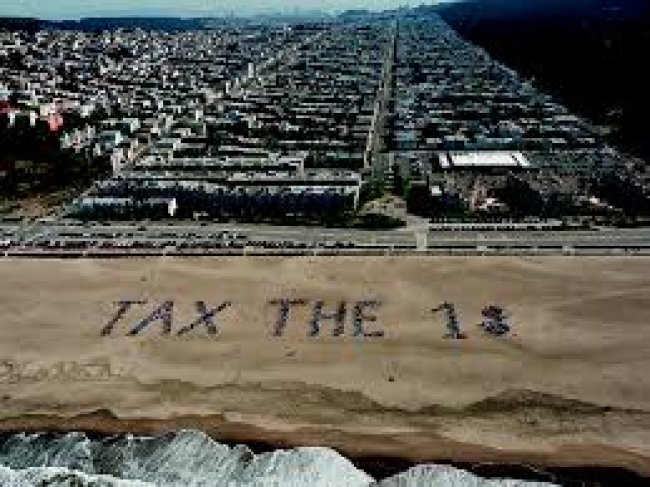Articles Menu

Even best-case scenarios seem to point to an agreement that falls short of an action plan to keep the world under 2 C of warming, the threshold scientists overwhelmingly agree can’t be breached in order to avert catastrophic climate change. What’s more, individual countries’ emissions targets won’t be legally binding, a position pushed by the U.S., China and other big polluters, and conceded in advance of the talks by Canada’s new Liberal government.
The data analysis by Oxfam is significant for a couple of reasons, first and foremost because it goes beyond the country-to-country comparisons that set the basic framework of the UN climate negotiations. Simply put, the data allows for a class analysis of the climate crisis.
“Rich, high emitters should be held accountable for their emissions, no matter where they live,” said Oxfam’s climate policy head Tim Gore said in a statement accompanying the report.
According to Oxfam, the poorer half of humanity, roughly 3.5 billion people, are responsible for a mere 10 per cent of all emissions. Tragically, the poor also live in the countries most affected by climate change and with the least capacity for adaptation.
Furthermore, Oxfam explicitly cautions against leaving the task of reducing the carbon footprints of rich or poor to individual lifestyle choices, pointing to the importance of government policy on issues such as transportation and energy. This approach has long been advocated by the Climate Justice Project of the Canadian Centre for Policy Alternatives, which emphasizes “structural changes and collective action to lower carbon footprints rather than individual behavioural change.”
The timing of Oxfam’s release is auspicious, coming on the heels of the launch of theBreakthrough Energy Group, an alliance of billionaires mostly from the tech sector, who have announced major new investments in renewable, non-fossil-fuel energy.
So while the super-rich have been lavished with praise from politicians, and soaked up much of the media attention during the first week of the Paris climate summit, Oxfam’s research serves as a reminder they are a disproportionate part of the problem.
Other recent studies have also made the case for making inequality reduction central to efforts to mitigate climate change. French economist Thomas Piketty, for example, published a major study last month entitled, “Carbon and inequality: from Kyoto to Paris.”
“It is the rich Europeans, Americans and Chinese that emit the most CO2, while the emissions from the world’s poorest citizens are falling,” Piketty and co-author Lucas Chancel argue. “The richest 1 per cent of Americans, Luxembourgers, Singaporeans and Saudis emit more than 200 tonnes of CO2 per person per year; 2,000 times more than the poorest in Honduras, Rwanda or Malawi.”
Piketty and Chancel recommend a number of measures to curb the emissions of the rich, including a new tax on air travel. Given Piketty’s fame since the publication of his bestselling book, Capital, it’s remarkable how little attention his recommendations on climate change have garnered.
It’s high time for the findings of Oxfam and Piketty to be put centre stage in Paris at the UN climate talks. If world leaders are serious about evidence-based climate policies, then they should make the billionaires cede the spotlight to anti-poverty activists.
[end of article]